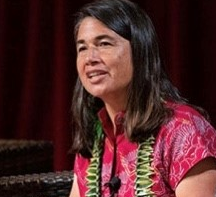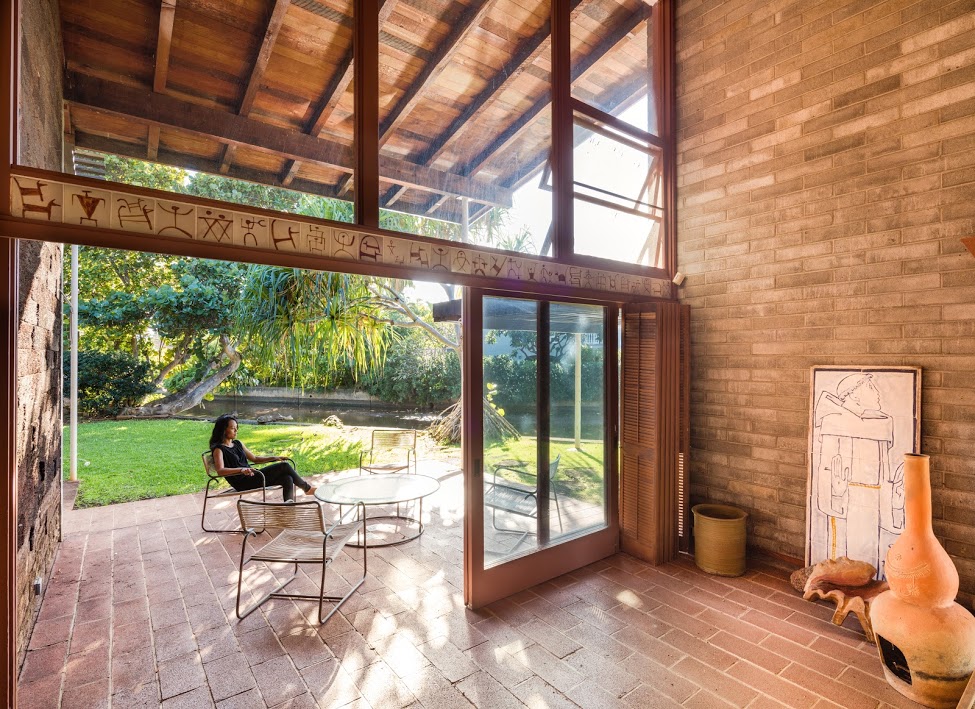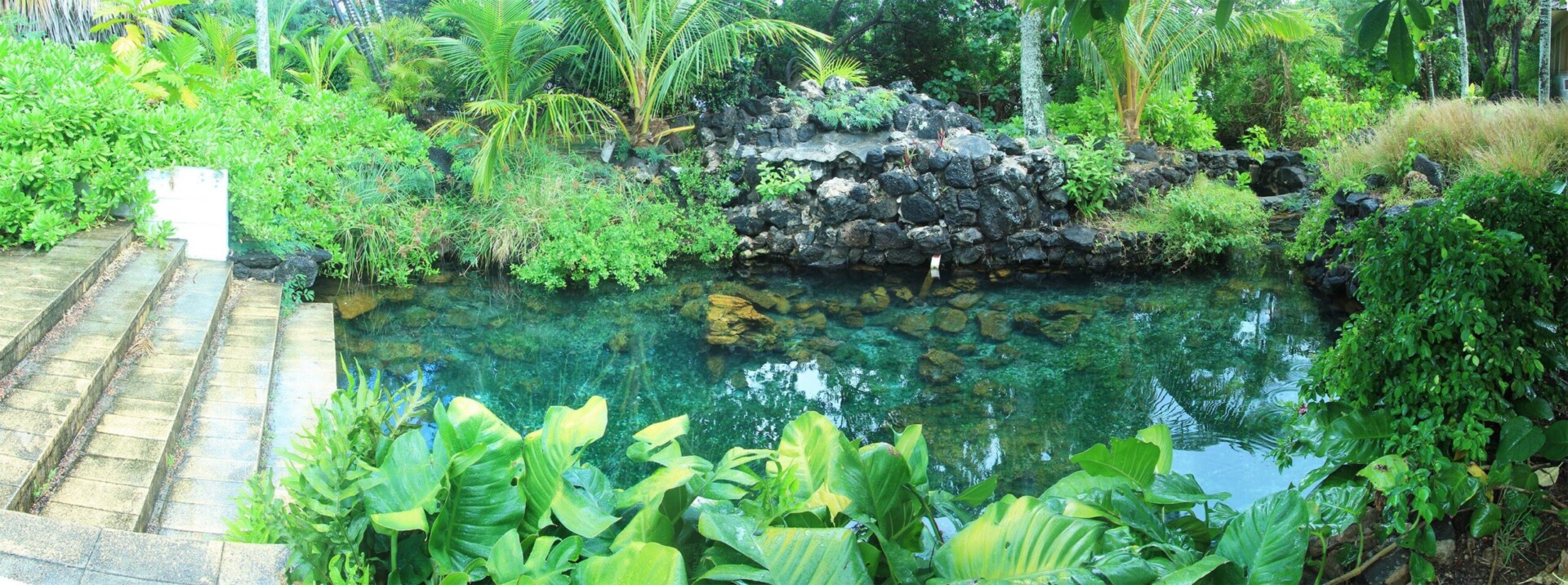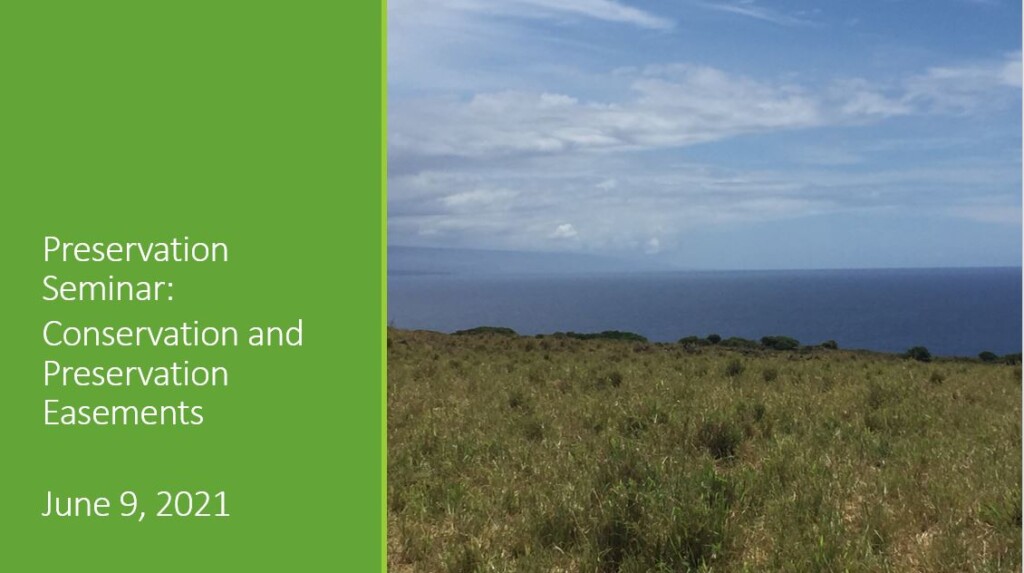Hawai‘i Preservation Seminar:
Preservation and Conservation Easements
Historic Hawai‘i Foundation, in partnership with the Trust for Public Land and Hawai‘i Land Trust, will offer a free seminar on using preservation and conservation easements for perpetual protection of special places.
Date: Wednesday, June 9, 2021
Time: 10:00 – 11:30 a.m.
Cost: Free
Virtual Webinar via ZOOM
VIEW THE VIDEO REPLAY AND PRESENTATION BELOW
Images at top: Jean Charlot House, Kahala, O‘ahu. Photo by Darren Bradley. Dearborn Building, Kaka’ako, Honolulu. Photo created by dji camera. Historic Hawaiʻi Foundation holds a preservation easement for each property. Kanewai Spring, added to the Most Endangered Historic Place list in 2015, has a Conservation Easement on it co-held by the City and County of Honolulu and Livable Hawaii Kai Hui (Ka Iwi Coalition). Photo credit: Nate Yuen.
The seminar provides training to members of the public, private, nonprofit or government sectors who own, manage, steward or are interested in preserving historic, cultural, scenic, natural and agricultural lands.
Preservation and Conservation Easements
Date: Wednesday, June 9, 2021
Time: 10:00 – 11:30 a.m.
The seminar has been submitted to the American Planning Association for AICP Certificate Maintenance Credits (1.5 CM Law Credits).
The Hawai‘i State Bar Association has approved the seminar for 1 CLE credit.
ABOUT THE COURSE
The training will present an overview of the definitions, criteria and considerations for using perpetual conservation and preservation easements to protect the intrinsic characteristics of special places, including lands with natural, agricultural and cultural values and buildings with historic significance.
Through the training attendees will learn:
• Statutory, regulatory, and IRS requirements for conservation and historic preservation easements
• How easements assist with voluntary land conservation and historic preservation goals
• Purposes and types of conservation easements, structure and stipulations of easements,
specific provisions recommended to meet regulatory and IRS requirements
• The pitfalls of which lawyers and other professionals advising private landowners should be aware
• How to work with land trusts and historic preservation organizations to establish easements
• How easements are maintained and monitored, and how landowners can comply with easement terms and stipulations
• Tax credits, deductions, financing and funding sources for easements
WHO SHOULD ATTEND?
• Public, private and nonprofit entities that own or manage historic and potentially historic properties in Hawai‘i
• Government agencies and funders who provide financial resources for conservation/preservation
• Community organizations or individuals with stewardship responsibilities for historic or cultural properties
• Land use professionals, including planners, attorneys, realtors and appraisers
• Land use and design professionals, including planners, architects, engineers, landscape architects, archaeologists, cultural resource managers, historians and architectural historians
• Community organizations or individuals with stewardship responsibilities for historic or cultural properties
• Other members of the public or organizations interested in preserving historic, cultural, scenic, natural and agricultural lands
ABOUT PRESERVATION AND CONSERVATION EASEMENTS
A conservation easement is a voluntary legal agreement between a landowner and a land trust or government agency that permanently limits uses of the land in order to protect its conservation values. Often landowners are willing to sell land for conservation, or restrict their property from development, for the right price, through selling a conservation easement, or for a combination of cash and tax write-offs. The key to voluntary land conservation is that it is a negotiation and a voluntary process from which the parties (land trust and landowner) can walk away at any time. The landowner is a willing participant in the conservation of the land and is not forced to conserve the land through laws or regulations imposed by the government.
A historic preservation easement is a voluntary legal agreement, typically in the form of a deed, which permanently protects a significant historic property. Since it is a perpetual easement, an owner is assured that the property’s historic character will be preserved. In addition, an owner who donates an historic preservation easement may be eligible for one or more forms of tax benefits. Under the terms of a typical preservation easement, a property owner places restrictions on the development of, or changes to, the property and transfers these restrictions to a qualified organization whose mission includes environmental protection, land conservation, open space preservation, or historic preservation.
RESOURCES
- “Community Guide to Hawai‘i Land Conservation” by The Trust for Public Land and Hawaiian Islands Land Trust (November 2020)
- “Easements to Protect Historic Properties: a Useful Historic Preservation Tool with Potential Tax Benefits” by National Park Service Technical Preservation Services (2010)
- https://forum.savingplaces.org/learn/fundamentals/preservation-law/easements
- https://www.landtrustalliance.org/what-you-can-do/conserve-your-land/questions
- https://historichawaii.org/2013/12/26/preservation-easements-provide-for-perpetual-protection/
PRESENTERS

Lea Hong has been the Hawaiʻi State Director of The Trust for Public Land, a national non-profit organization dedicated to conserving land for people, since 2006. She previously chaired the environmental and cultural resource law practice group at the Honolulu law firm of Alston Hunt Floyd & Ing (now Dentons), and worked for the Earthjustice Legal Defense Fund. Lea is a graduate of Rice University and the William S. Richardson School of Law at the University of Hawai‘i, where she serves on the Friends of the Law School Board and has taught classes on environmental litigation, environmental regulatory compliance, and conservation transactions. She is from Wahiawā, on the island of Oʻahu and enjoys surfing and catering to her mini-labradoodle in her spare time.

Laura Hokunani Edmunds Kaakua
Hawai‘i Land Trust appointed Laura Kaakua as President and Chief Executive Officer in March 2019. Ms. Kaakua is a graduate of Punahou, Boston College and the University of Hawaiʻi William S. Richardson School of Law, where she received the Environmental Law Certificate. Laura has extensive land conservation experience, spending nine years prior to HILT serving as the Aloha Āina Project Manager at The Trust for Public Land. She has also been a lecturer at the William S. Richardson School of Law and served as a Law Clerk for the Honorable Greg Nakamura in the Third Circuit Court. Kaakua is an alakaʻi of Hālau Nā Pualei o Likolehua, a volunteer with Protect Kahoʻolawe ʻOhana, and served as a committee member of the Access to Justice Commission.

Kiersten Faulkner is the chief executive of Historic Hawai‘i Foundation and oversees all aspects of its preservation programs, strategic planning, business lines and operational matters. She holds a Master of Arts in Urban and Environmental Policy from Tufts University and is a member of the American Institute of Certified Planners (AICP).

Michelle Galimba and her ōhana operate Kuahiwi Ranch in Ka’ū on Hawaiʻi Island. The ranch produces grass-fed beef Foodland and Whole Food supermarkets and restaurants. Kuahiwi Ranch has two conservation and preservation easements that encumber lands the ranch owns at Kawala.





